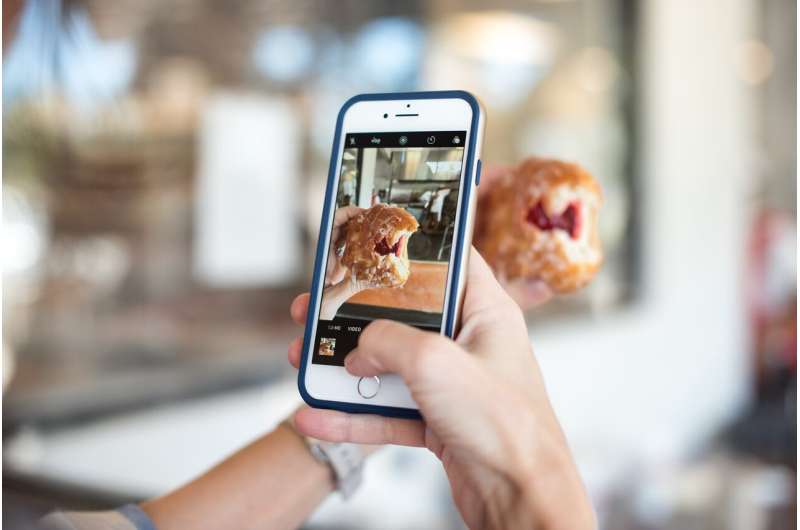Fast food brands used NZ's lockdown to market unhealthy nibbles

Companies selling snacks and fast food leveraged Aotearoa's first pandemic lockdown to market their unhealthy products to New Zealanders, a University of Auckland study shows.
Social media posts from 14 of 20 of the nation's biggest food and drink brands during March, April and May last year referenced the COVID-19 response, according to an analysis just published in the journal Frontiers in Nutrition.
Posts used phrases such as #allinthistogether (Domino's), "Kia kaha [Stand strong]" (McDonald's), and "We know these are challenging times for all of us…" (Lindt). Other posts encouraged overconsumption "Not sure who needs to hear this, but you can order Domino's more than once today. It's OK." (Domino's) or applauded front-line workers while referencing the brand's own product "The world is forever grateful to you for not having a break right now. #ThankYou" (KitKat, Nestle).
The researchers called these tactics "COVID-washing," similar to "greenwashing" where companies use environmental concerns as a marketing ploy. COVID-washing "portrays a company as empathetic and contributing in a meaningful way to the pandemic response, when, in reality, it was just another strategy to promote products and choices that are detrimental to health," says lead author Dr. Sarah Gerritsen.
The study found that out of 1,368 posts during the three months, 27% related to COVID-19 themes. Fast-food companies were the most likely to reference the pandemic, with a rapid increase in their number of social media posts just prior to the end of Level 4 restrictions.
The most common tactic (in 36% of posts referring to COVID-19) was linking a brand with community spirit. Suggesting brand-related isolation activities was also common (23%), along with the message that consumption helps people to cope (22%).
Six posts were found to potentially breach one of New Zealand's advertising standards codes by promoting excessive consumption or targeting children.
The authors argue that the findings cast doubt as to whether food and beverage companies were showing a "due sense of social responsibility to consumers and to society" and did "not undermine the health and well-being of individuals" as required under the New Zealand Advertising Standards Code.
The marketing of unhealthy food and beverages is widespread across multiple online platforms. During lockdown, Facebook, in particular, became a way for companies to rapidly share advertising content to reach a large audience, as most of the population was spending more time than ever online.
At the same time, many people were isolated or stressed, which increased their vulnerability to comfort or binge eating and led to increased unhealthy food and beverage purchasing and intake. Other research from the lead author showed that adults experiencing the most stress during lockdown, for instance those who had lost income or were juggling working from home with childcare, were the most likely to struggle to eat healthily.
"Being bombarded by advertising online undermines our ability to eat well, and during the pandemic these companies were preying on our anxiety," says Dr. Gerritsen. "The misappropriation of social concern about the pandemic in order to promote unhealthy products and build brand loyalty at a time when many people were experiencing heightened stress is unconscionable and undermined public health."
More information: Sarah Gerritsen et al. The Timing, Nature and Extent of Social Media Marketing by Unhealthy Food and Drinks Brands During the COVID-19 Pandemic in New Zealand, Frontiers in Nutrition (2021). DOI: 10.3389/fnut.2021.645349


















